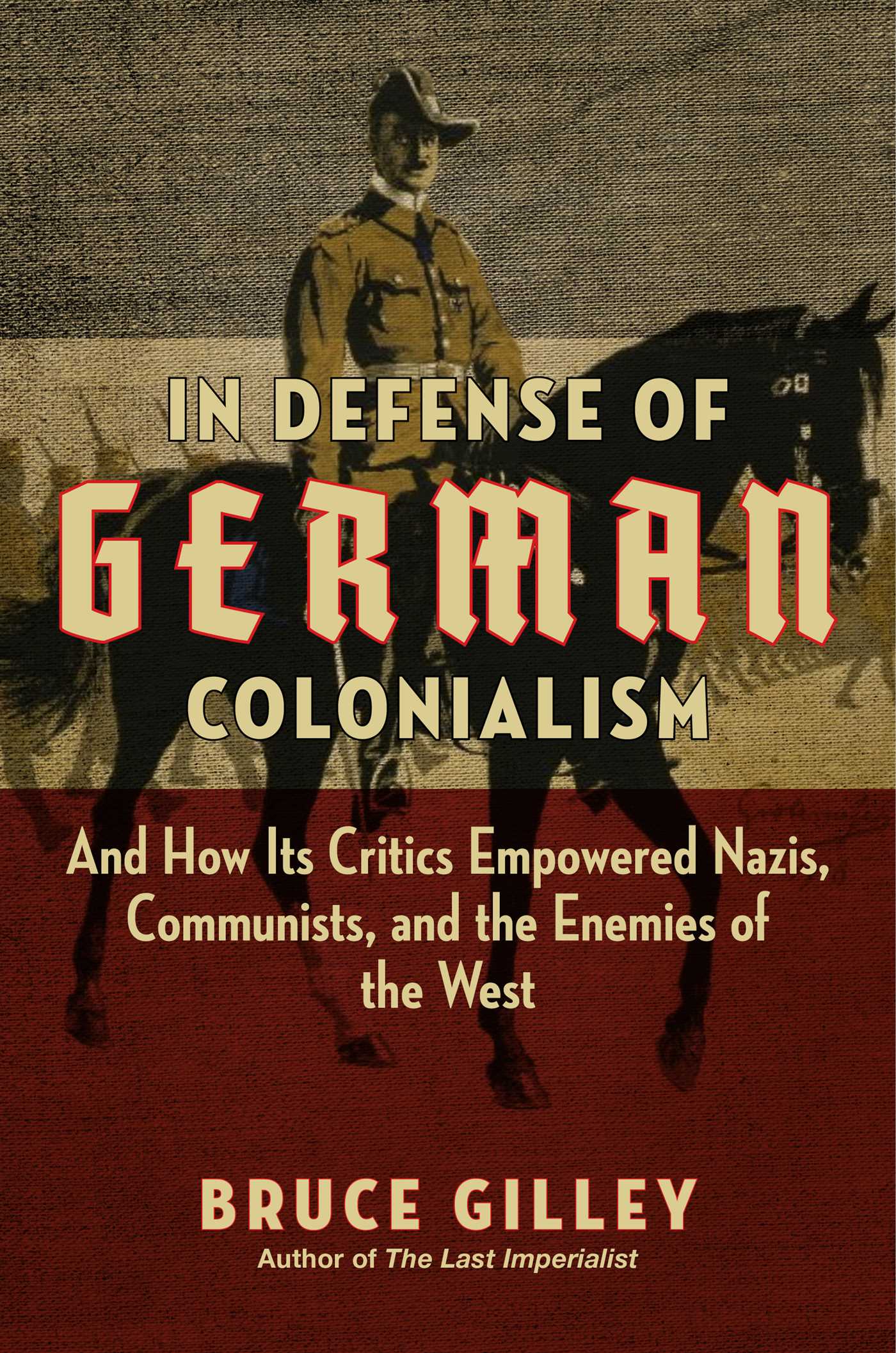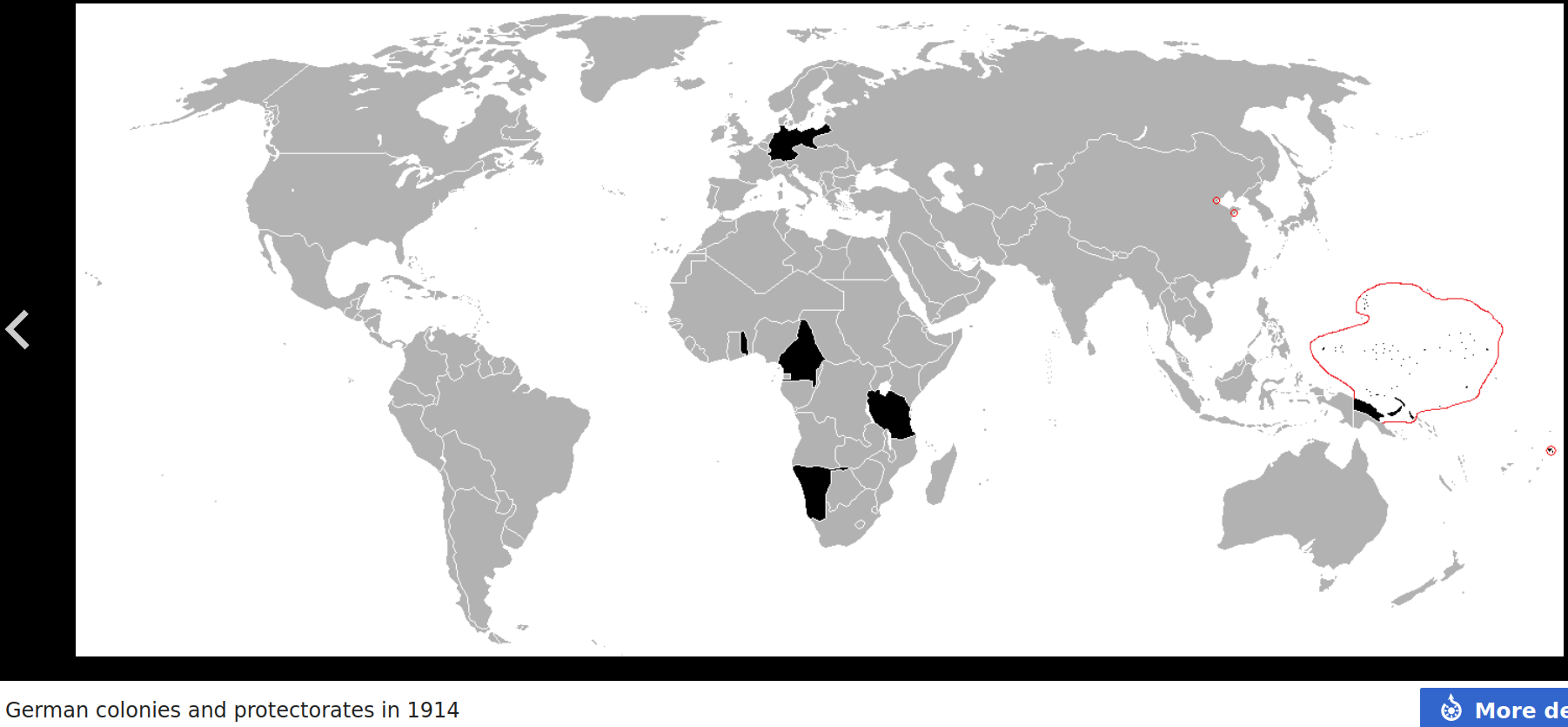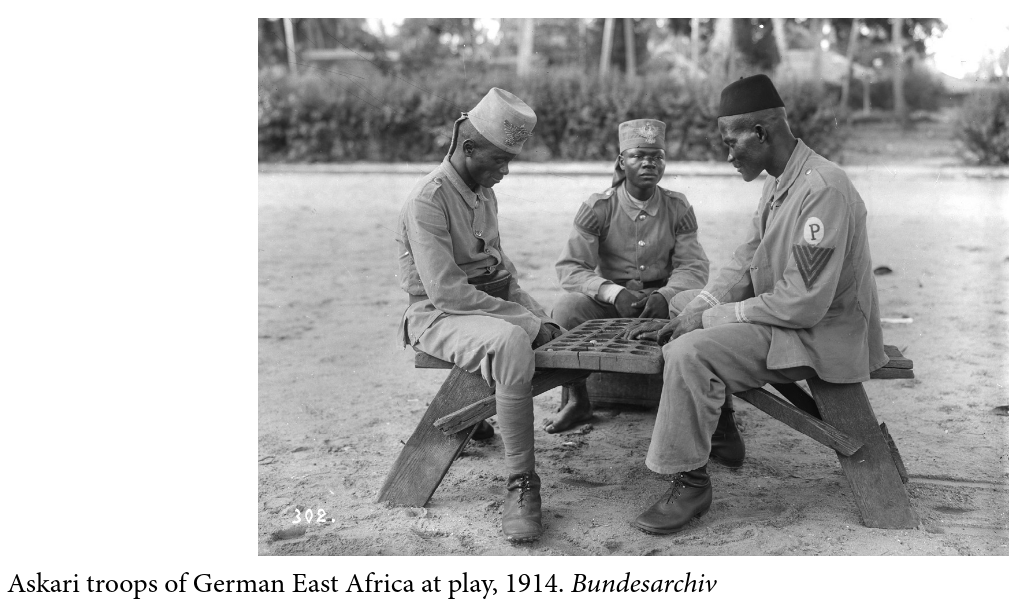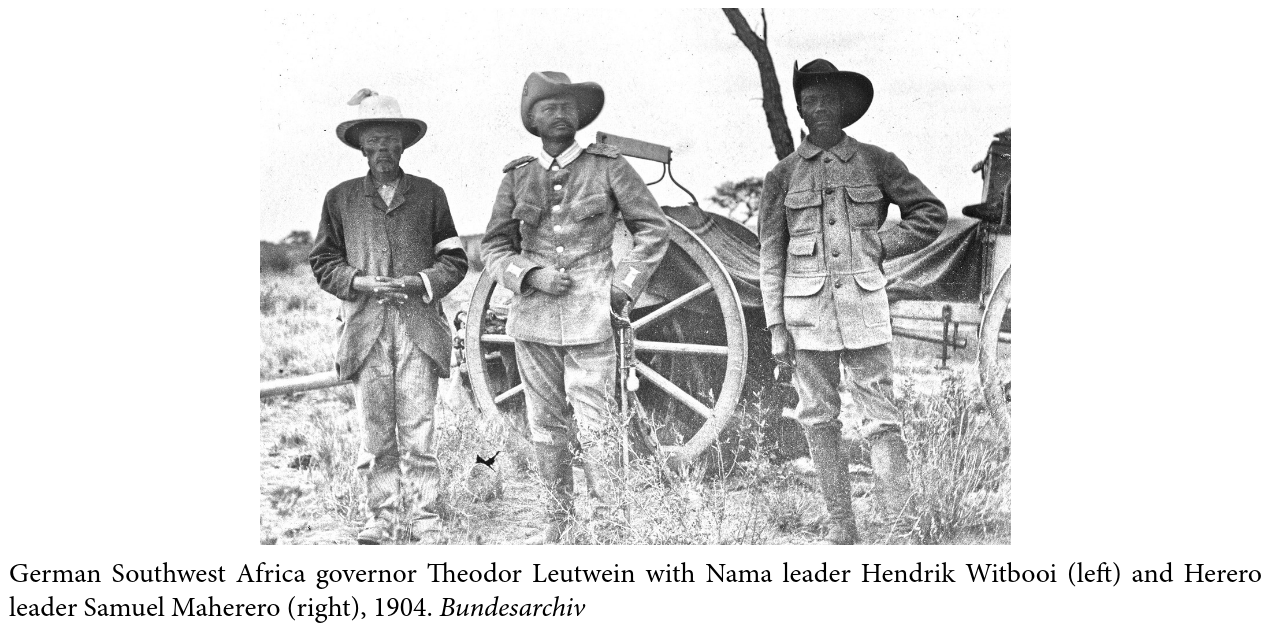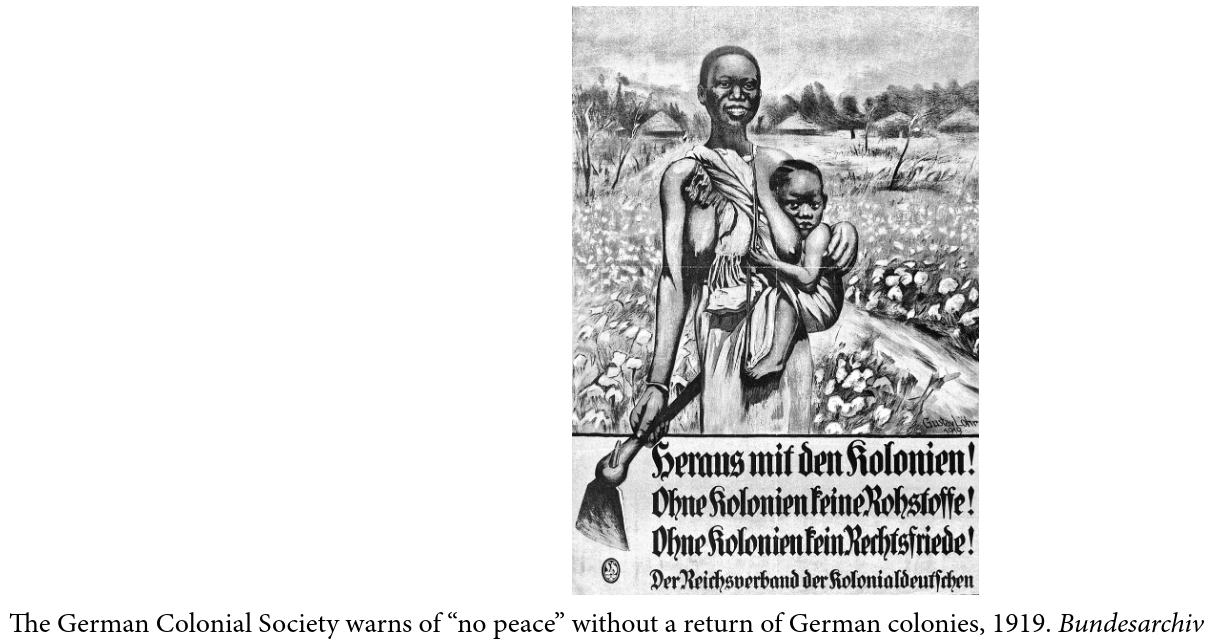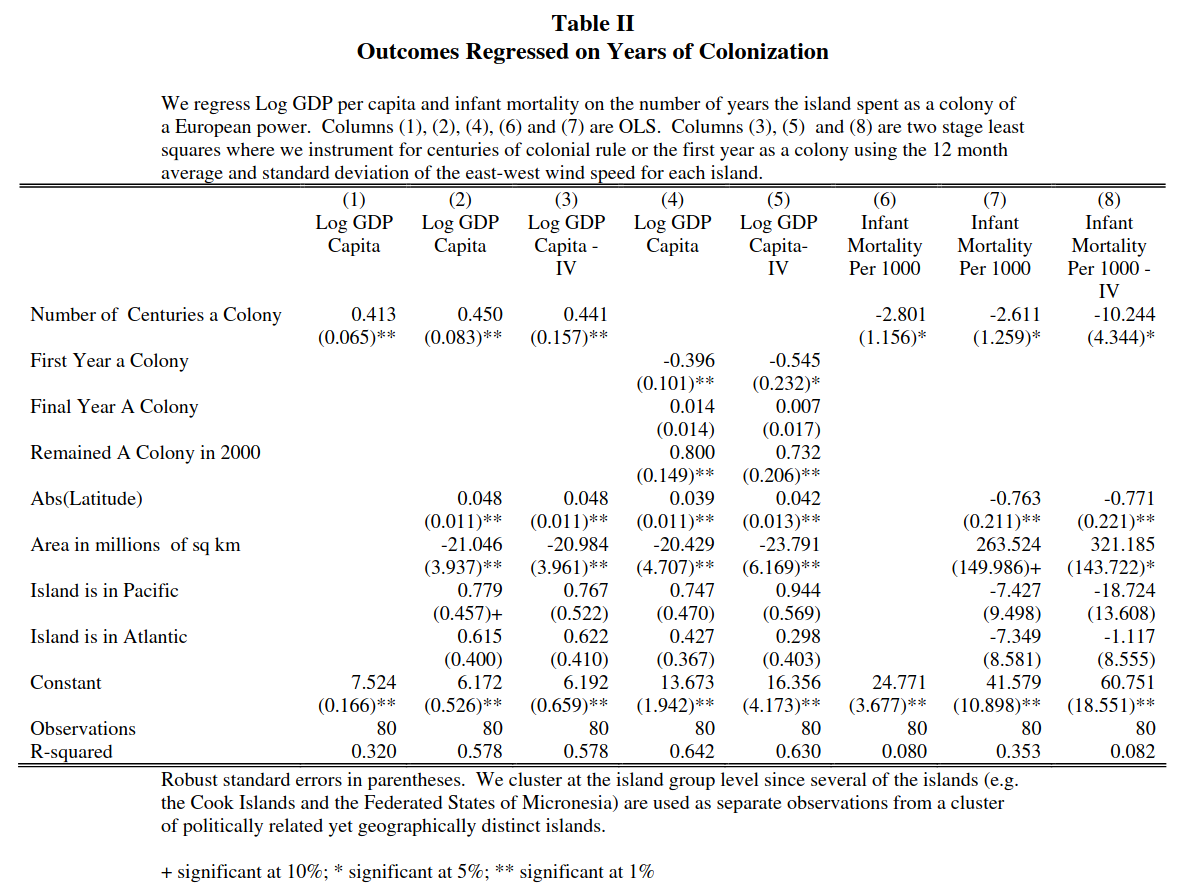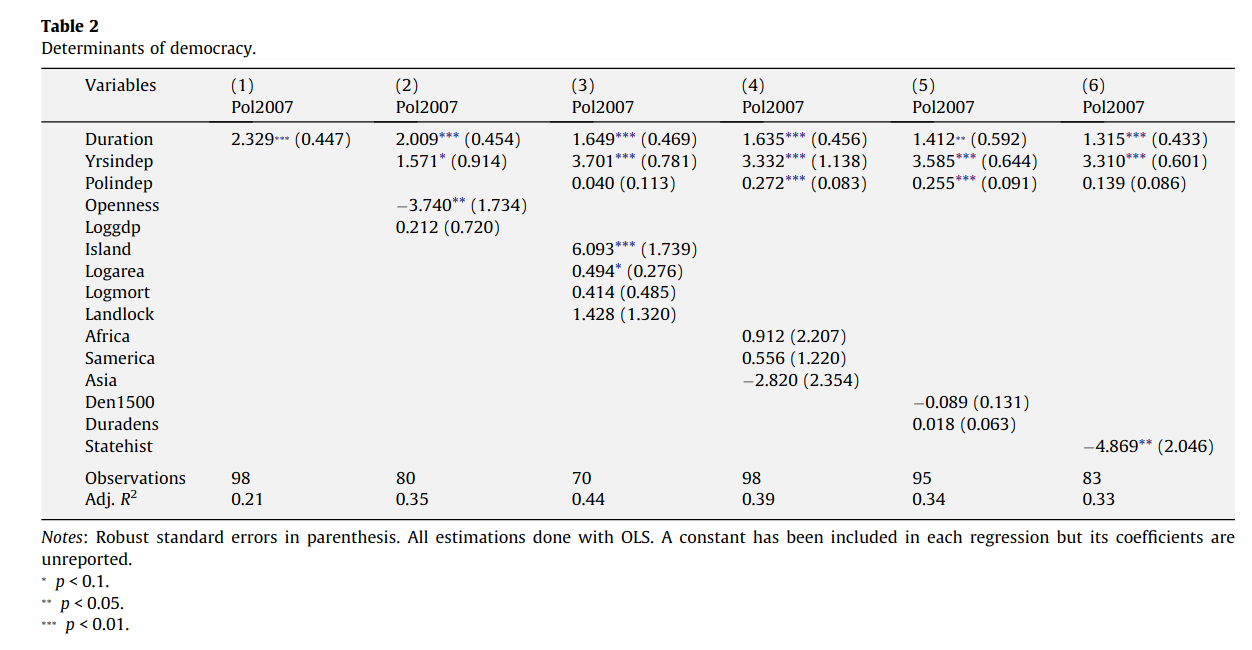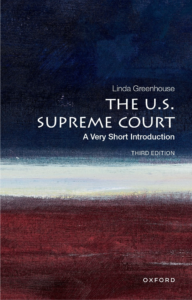Back in 2017, Bruce Gilley published this article:
- Gilley, B. (2017). The case for colonialism. Third World Quarterly, 38(10), 1.
For the last 100 years, Western colonialism has had a bad name. It is high time to question this orthodoxy. Western colonialism was, as a general rule, both objectively beneficial and subjectively legitimate in most of the places where it was found, using realistic measures of those concepts. The countries that embraced their colonial inheritance, by and large, did better than those that spurned it. Anti-colonial ideology imposed grave harms on subject peoples and continues to thwart sustained development and a fruitful encounter with modernity in many places. Colonialism can be recovered by weak and fragile states today in three ways: by reclaiming colonial modes of governance; by recolonising some areas; and by creating new Western colonies from scratch.
Famously, it was then retracted because there were too many death threats against the author and even the editor. It was then republished by the NAS a year later, and there’s some criticism of it on Cato, and the author has a reply here. So far so good, but Gilley wasn’t done with this topic. So he wrote a book, this book: In Defense of German Colonialism.
A rather explosive title, one might say, but it is well chosen. Of course, most Western readers will have various ideas about how Germans might have acted in their colonies considering their World War 2 behavior, but that’s actually very incorrect. As Gilley documents in a series of summaries of each German colony, the Germans of 1884-1920 were very nicely behaved, and basically tried to Westernize the locals in a fairly benign way. Not imposing their own language, bringing peace between the various tribes that were perpetually at war, outlawing rape, cannibalism, slavery, introducing markets etc. It’s a short read, some 180 pages, and I found it pretty entertaining because the author is fairly polemic. It’s not a purely scholarly book, it’s spirited defense of German colonialism, Western colonialism more generally, and attack on the usual ideologues in the history departments.
Per usual, I will quote parts and add some comments, but first, which colonies?
It’s a bit all over the place as Germany got a late start, but the ones in question are these:
- Africa: Cameroon, Togo, “German East Africa” (Burundi, Rwanda, the Tanzania), “German South West Africa” (Namibia)
- Asia: Samoa, New Guinea, Qingdao (German ‘Hong Kong’), Kiautschou (also China)
Qingdao was the most interesting to me. This one I had never heard about, and its loss of German colonialism was a great loss. We’ll get to that. Let’s begin with the table of contents:
- Preface: Black Berliners and Their White Supporters
- Chapter 1: Laying the Prussian Lash on German Colonial History
- Chapter 2: The Spirit of Berlin
- Chapter 3: Who Shot Off My Thumb?
- Chapter 4: The Culturally Competent Krauts
- Chapter 5: Rafting the Sanaga in Wicker Baskets
- Chapter 6: How Do You Say Class Conflict in Ewe?
- Chapter 7: The Suspicious Dr. Koch
- Chapter 8: The Dancing and Feasting Continued by Torchlight for Two Nights
- Chapter 9: ‘Ganbei!’ How the Chinese Colonized Qingdao
- Chapter 10: The “Shabby Annexations” of Versailles
- Chapter 11: Why the Loss of Colonies Doomed German Liberalism
- Chapter 12: Nazi Anti-Colonialism and the War on Europe
- Chapter 13: Communist Anti-Colonialism and the Division of Europe
- Chapter 14: Woke Anti-Colonialism and the Hollowing of Europe
How did the author, who is not German, get into this topic?
I became interested in German colonialism while writing The Last Imperialist, a biography of the British colonial governor Sir Alan Burns published in 2021. As a young administrator in West Africa, Burns was sent into combat against neighboring German colonies when the Great War began in 1914. Despite being vastly outnumbered, the African natives fighting for Germany were tenacious and loyal. Native support for the Germans was so vigorous that the young Burns was taken out of the field and sent to British Lagos to recruit more soldiers. All this seemed puzzling to me because, having read what passes for scholarship on German colonialism, I believed that Africans (as well as the Arabs, Chinese, and Samoans) hated the Germans. But if that were so, then why did these peoples rally behind their German governors during the war? In East Africa, the natives did not lay down arms until word came that the fighting had ended in Europe. In West Africa, they followed their colonial masters into exile in neighboring Spanish territory and petitioned world leaders to restore Berlin’s authority. Such stubborn facts are incomprehensible to the modern mind, trained as it is to think of European colonial rule as loathsome and unwelcome.
It is indeed very puzzling with our modern eyes. Why do Africans defend a German colony against attackers? Shouldn’t they instead rally with the attackers in a gamble for independence? The typical framework that we view colonialism in is that Evil Western empires sailed around the world with their superior militaries, then forcefully invaded various hapless peaceful savages, then extracted their resources, and then finally they either left or were kicked out in some kind of anti-colonial revolution. In this framework, Africans taking up arms to help defend German colonies seems inexplicable. But it was real, looks like this:
The thesis of the book is this: Germany unified in the last part of the 1800s. The other Western empires already had colonies, and there were some people trying to get Germany to get some too. It was all the rage to get colonies humanitarian points (teaching savages about Jesus and modernity) and military reasons. But the leaders of Germany, Bismarck and others, weren’t very interested in colonies:
In the winter of 1884–85, the chancellor of a novice country called Germany, Otto von Bismarck, convened a conference of fourteen European nations and other major powers to discuss colonialism in Africa. Competing claims in West Africa and the Congo set the agenda, but the conference ended up establishing principles that became the guiding ideals of the European colonial mission as a whole. This “Spirit of Berlin” was particularly relevant to Germany because its colonial era was just beginning. There was no “dark past” that needed to be excused, reformed, or forgotten. Instead, the Germans took pride that they had set a new standard for excellence in colonial administration.
It was fitting that Bismarck was the man presiding. Only the previous decade, as president of the old Germanic kingdom of Prussia, he had “colonized” twenty-six disparate territories to form the new state of Germany. Replacing archaic political systems with a modern state was something he knew well. During the meeting at his residence in Berlin, Bismarck engineered a remarkable shift in the rules of the colonial game. This shift would shape every aspect of the German colonial project that followed.
Since founding Germany in 1871, Bismarck had displayed nothing but disdain for colonialism. This was despite the urgings of modernization theorists like Max Weber who famously called the creation of Germany a “youthful prank” (Jugendstreich) that would be worthwhile only if the young nation made something of itself on the world stage. German traders were establishing depots, factories, and coaling stations flying the German flag across Asia, Africa, and the Middle East. But when pressed, the chancellor always demurred. No matter what exotic colonial prospects were offered to him—Mozambique, Ecuador, Tunis, Curaçao, Formosa, Morocco—Bismarck showed little interest. “No colonialism as long as I am chancellor,” was his oft-repeated phrase.
Nevertheless, eventually, he was convinced to take up some colonies, and that’s how the world map of German colonies ended up looking like that. After acquiring them, Germany set out trying to make peace in their new lands. They sent relatively tiny military forces to each, established a colony, which mostly meant trade, education, and peacekeeping/policing. Peacekeeping was a vital necessity because the various countries were usually in semi-permanent inter-tribal warfare:
German missionaries, traders, and settlers began arriving in the territory north of the British Cape Colony in the nineteenth century. They found a place that was in every respect anarchic and violent. The various groups inhabiting the region occupied shifting centers without demarcated borders.1 The future Namibia was a dangerous space of cattle raiding, slave raiding, and war long before the Germans arrived. In particular, the Herero and Nama, both of which had migrated to the area only a generation before the Germans, had tense and violent encounters over pasture lands and enclosures.2 The Herero were part of the extensive Bantu expansion into southern Africa that displaced or wiped out most of the indigenous Khoisan groups, of which the Nama were one. The later land commissioner of the colony, Paul Rohrbach, called the Herero a “predatory indigenous tribe.”3
Fighting for survival, the Nama massacred a fifth of the Herero population in a single day on August 23, 1850, at a place now known as Murder Hill.4 Another Nama raid of 1890, recorded by the newly arrived Germans, resulted in the burning of the entire southern territory of the Herero in what can only be described as an attempt at genocide.5 The Herero also displaced and enslaved the indigenous Damara people, who fled into the mountains. The Germans called them the Berg or “mountain” Damara and created a protected homeland for them in 1906. Missionary reports from before the German annexation described constant Herero raids on Damara and Saan villages. “They spared only the young and strong so that they could use them as slaves,” explained one report.6 The mutual antipathies and traditions of cattle and slave raiding in this area predated European contact. Honest historians, wrote two Tanzanian scholars, “should be able to discuss the atrocities committed between African communities in the precolonial period.”7
Initially, there was arms trade to the Africans, but since this just made their warfare worse, this was eventually banned:
Legislation introduced by German authorities after 1884 outlawed the arms trade. But the tensions between the two seminomadic groups did not relent. In 1886, German soldiers witnessed a grisly battle between Herero and Nama after the latter tried to occupy a water well claimed by the former at the settlement of Osona. (Today, oddly, this is the site of a Namibia Water Corporation vocational training center.) As soon as the battle ended, the Germans moved into the field to assist the wounded. The new governor, Heinrich Göring, “did not seem to tire of extracting cannon balls and sewing up wounds,” one officer recalled.11
But that wasn’t enough, so the Germans resorted to active peacekeeping. This is basically what the UN did in the Yugoslavia war: see a place with too much ethnic/tribal conflict, step in the middle with guns, and tell them to make peace. Eventually, the Germans taught the locals to capitalism, and this worked:
When German settlers began looking for land to graze, the Herero were all too happy to dispose of their holdings. The Herero became willing partners of German efforts to modernize agriculture and, when minerals were discovered, to build railways.13 The Herero’s enduring love of German-style military uniforms was one odd result of this partnership, and cooperating with the Germans strengthened their position vis-à-vis the Nama. Witbooi, seeing that the good old days were over, laid down his arms and was given a civil-service salary. He pledged to enlist in the German forces anytime he was needed. At first then, German colonialism seemed to be taking the region from violence and poverty towards peace and prosperity. Warring tribes were pacified, and the construction of a modern state had begun.
The Nama too became willing partners of the colonial project. Among the many housekeeping tasks performed by the state was the shrinking of Lüderitzland back to its agreed-upon dimensions because the wily founder had used an archaic definition of “mile” to extent his holdings well into Nama territory. Witbooi was pleased, and he even provided twenty of his troops to the colonial forces to help them apprehend a band of thieves terrorizing the countryside.14 Such collaborations were later ignored by scholars because, as a 1999 thesis written by a German military officer noted, “the image of Africans and Germans serving together in field companies did not seem to fit into their cliché of German colonial history.”15
Sometimes Nature intervened, which required special medical efforts by the Germans:
In 1896–97, a rinderpest epidemic struck the Herero and Nama region’s cattle. The German administration drew a quarantine line dividing Hereroland from the northerly section of Ovamboland and built a 550-kilometer string of monitoring stations. Without German settlers to provide employment and food, a large part of the Herero population would have died of starvation and malnutrition. Certainly, the Nama and other groups would not have set up soup kitchens. South Africa’s white-owned diamond companies paid for Robert Koch (then a little-known German scientist) to visit, and he quickly discovered an effective cattle vaccine that won him a Nobel prize in 1905.16 Veterinarians assigned to the German military garrison managed to vaccinate most of the Nama and settler herds because they were geographically concentrated. The Herero herds, by contrast, were greater in number and widely dispersed. Half of their cattle succumbed.
After a bunch of episodes of the above, a peace was eventually made, as in this famous photo of the leaders of the warring tribes:
However, peace was not to be for long, as civil unrest was growing because of the cow disease killing the food:
Late in the year, when the German militia of two thousand troops was in the south of the colony, the Herero rose up. They attacked ranches, farms, and mission stations and sabotaged telegraph cables and railway lines. The major atrocities carried out by the Herero in January 1904 included wanton destruction not just of 120 German settlers but also of farms and infrastructure. These were not wars of defense but wars of annihilation. If there was a genocidal intention evident anywhere in this colony’s history, this was it. Maherero’s battle cry was plain: “Kill all Germans!” A few days later, he amended the battle cry: “Do not kill women, children or missionaries, no Boers and Englishmen.” The German response was predictably forceful and uncompromising. German officials could respond only by defeating the rebellion that sought to throw the region back into turmoil and to exterminate one of the resident groups.
The task for German colonial authorities after the initial rebellion was to restore order, reform land policy, and address the tensions among the various groups. But governor Leutwein’s hopes for a short campaign followed by a negotiated peace evaporated under the scorching sun when it became clear that Maherero’s forces wanted a fight to the death. Maherero famously wrote to Witbooi enjoining him to “fight to the death,” even if it meant their respective groups would be annihilated by the difficult conditions and loss of access to life-sustaining water and food. After German forces escaped a Herero encirclement through a daring nighttime flight in April 1904, Leutwein wired to Berlin for help: “Accusation of failure hits me hard… [I] believe we have saved the troops from catastrophe by a night march. I am asking for replacement by a high officer who enjoys the full confidence of the general staff because it is the only way.”23
In response, the new German emperor, Wilhelm II, made a second policy mistake. He sent a war-hardened outsider, General Lothar von Trotha, to the colony. A veteran of counterinsurgency in German East Africa, von Trotha had most recently been in China helping the Chinese governor of northern Shandong province suppress the murderous Boxer Rebellion there. He saw in the Herero uprising a threat similar in scale and nature, one that could not be solved by negotiations. The decision to send him into the delicate situation went against the advice of the cabinet, the minister of war, and the director of the colonial department.24
Trotha planned to use German troop reinforcements to wage a single decisive battle. Large amounts of barbed wire were prepared for POW camps. But the decisive battle eluded him. Trotha now pledged to defeat the Herero at any cost, worrying that the racist rhetoric of Maherero might give rise to an “Ethiopian movement” that sought to exterminate all non-blacks in the area.25 Having failed to apprehend, defeat, or gain the surrender of the Herero, Trotha at the very end of the conflict issued an order for all Herero to leave the colony for neighboring British Bechuanaland (now Botswana), where they had been allowed to settle by the local chief since 1896. All men not complying would be shot on site. Women and children who did not surrender would be shot or imprisoned.26
The Nama at first joined the German counterinsurgency against the Herero. Witbooi fulfilled his promise to fight for the Germans despite being eighty years old. His group might have remained loyal had not an itinerant African preacher convinced him that the Herero defeat was a sign from God that he could regain his former glory. The Nama rebellion he led was short-lived, as he soon bled to death from a gunshot wound. The Nama surrendered on pain of an order similar to that issued against the Herero.
By the time the rebellions ended in 1906, the officially enumerated Herero population in the colony had fallen by 75 percent from eighty thousand to twenty thousand. The officially enumerated population of the Nama had fallen by half from twenty thousand to ten thousand. In addition to 150 murdered settlers, the Germans counted their losses at 1,400 dead and another 1,000 wounded or missing.
So, insofar as we are in the 1900s, this was a pretty civil method of achieving peace. Overall, the outcome of the Southwest African colony was not superb, but not too horrible either. It went a lot better in their other African colony on the other side, Tanzania:
If we judge German colonialism by the place where most of it occurred, then German East Africa should receive most of our attention. This colony of eight million people which mostly became Tanzania (other bits are now in Rwanda, Burundi, Kenya, and Mozambique) accounted for about 57 percent of the German colonial experience in terms of people-years. It is far more noteworthy than any other part.
Why do we hear so little about German East Africa? For a simple reason: it was a resounding success, bringing prosperity to a region long wracked by internal conflict and the slave trade. It was a rare episode of “overseas development” that actually worked, and it enjoyed a high degree of popular legitimacy as a result. While on safari in the colony in 1909 after leaving office, U.S. president Theodore Roosevelt remarked on the “men of evident power and energy, seeing whom made it easy to understand why Germany in East Africa has thriven apace.”1
The justifiably heroic figure here was Carl Peters. An adventurer par excellence, he signed twenty-five treaties with local chiefs in the course of just a few weeks in 1884 that put an area the size of India under German control. Peters has been dubbed a German conquistador because of the swagger he showed while scooping up territory for the German empire. But most of the time he was wracked by tropical disease, carried in a hammock by black porters while waving his pistol to indicate the direction he wanted to go. The German presence was welcomed by most groups because the region had long suffered from plundering and slave raiding. “[Our chief] welcomed them. All they wanted was to live in his country, so why should he abhor them?” a Luguru elder told a researcher in 1968. The Germans, he explained, offered protection from their historical rival, the Mbunga.2
Cameroon:
German Cameroon accounted for 30 percent of the “people-years” of German colonialism, the second-largest portion after German East Africa. The scholarly literature on this colony is sparse. Presumably, that’s because not much happened other than successful German rule. The main interest that scholars take in this colony is scouring the record for instances of kraut brutality—more “colonial scandals”—or for some hapless, fever-ridden, colonial official’s diary that they can deconstruct with a postmodern scolding.
German Cameroon was a mountainous and rain-soaked colony of three million people, twice the area of Germany. In the south, German rule operated through the coastal Duala tribes, who became prosperous middlemen as a result of colonization. The Duala consisted of three major factions and were plagued by internecine warfare throughout the nineteenth century. This culminated in 1876 when two of them ganged up on the third and executed its chief. Politics among the Duala never moved in the direction of unity, despite encouragement from European traders to form a single political organization. In 1881, the two remaining chiefs wrote to the British asking if they would be so kind as to annex the region. “We are tired of governing this country ourselves; every dispute leads to war and often to great loss of lives,” they noted.
And even the other colony in West Africa, Togo, did well:
German colonialism in Togo—just 8 percent of the German colonial experience—is intriguing because of the desperate attempts by academics to discredit what was seen as a “model colony” (Musterkolonie). Mere mention of the term “model colony” is enough to bring forth a righteous froth from most professors and to induce snickering in their graduate students. Facts, however, support the view that German rule here ushered in a miraculous positive transformation.
The colony was founded in 1884 when two main chiefs along a thirty-two-mile strip of coastal land in West Africa (one of whom had Portuguese ancestors) signed a petition asking for German protection from the British. A German envoy promised each “protection to maintain the independence of his West African territories.” Berlin envisioned the coastal strip as a trade corridor where European merchants, protected by a limited government, would barter with native groups for mutual benefit. The plan meshed with the long-standing commercial ethos of the coastal groups. Since the neighboring British colony imposed stiff import duties on goods, a free trading colony next door would prosper. “This small area of Togo, in relation to the trade routes to the deepest interior, may be called very promising,” wrote the German envoy.1
The humanitarian efforts in the above quotes were not unusual, in fact, a more important one happened later:
Throughout its African colonies, Germany was unequalled in its ability to scale up life-saving health interventions against smallpox, sleeping sickness, and other nasty tropical diseases. It also excelled at providing for general public health. Cynics dismiss these accomplishments as a way to “optimize exploitation” or find unsuspecting brown and black people for unethical experiments. The truth is that the German health miracle in the colonies was a sincere and just accomplishment that by itself renders the German colonial era a success.
It is easy to forget that until World War I, German was the language of global science. The German scientific ethos was adventurous and thorough. The famous Schlagintweit brothers from Munich engaged in the singular feat of mapping and describing the diverse cultures of North Africa, Tibet, Central Asia, and the Himalayas, all while creating an indigenous network of scholars in their wake. Their comrades, native and European alike, followed them, even unto death.1 German doctors took advantage of growing colonial possessions to make major contributions to the science of Africa and Asia. We have already seen two examples: the nature parks created by Carl Georg Schillings in East Africa (later denounced as the product of the Nazi-bombardier gaze) and the work of Nobel laureate Robert Koch to save the cattle of the Herero from rinderpest (presumably just a stalling tactic until Lothar von Trotha arrived). The entire German colonial enterprise was suffused with scientific purpose. In German Togo, the Hamburg research doctor Ernst Rodenwaldt launched the field of “medical geography” as a result of his observations on the relationship between malaria outbreaks and salinity levels in coastal lagoons.
Without doubt, Germany’s greatest humanitarian contribution to Africa during its colonial period was the discovery of a cure for sleeping sickness. In terms of lives saved, Germany’s colonial achievement could stand on this ground alone. Sleeping sickness originated in nomadic cattle-herding populations in Africa whose movements had spread the disease for hundreds of years before the colonial era.2 The increase in intensive farming under colonialism accelerated its spread, an inevitable result of policies to increase food supply and modernize agriculture. The disease was ravenous. The British calculated that an outbreak in 1901–07 killed between two hundred thousand and three hundred thousand people in British Uganda, and two million people succumbed in all of East Africa in 1903 alone. “The sleeping sickness problem overshadows everything else in my work here,” wrote the governor of Uganda at the time. “The disease rages unchecked and hundreds are dying every month.”3
Things went a lot smoother in Asia:
As early as 1880, Bismarck, despite his obstinacy on overseas colonies, was impressed by the coffee, spices, and rubber that the Dutch were importing from Java. He dropped hints to retainers that a “German Java” would be a very fine thing. The result was two colonies spread over thousands of miles where communications were spotty and the German presence barely noticeable. By 1914, there were just 1,500 Germans (and another 700 Europeans) living in the vast Pacific archipelago claimed by Berlin—rare sightings in a native population of about 600,000. Most of these were missionaries, traders, and farmers. Just 180 government officials ran the entire show, the equivalent of one official for every five hundred square miles of land area. The Germans in the Pacific acted more like museum curators and cultural-exchange officers than colonial administrators. The “resistance” they faced was mainly from typhoons and solitude.
German rule came easily and naturally, with none of the arduous state building required in Africa. Colonial officials in Africa looked with envy upon their colleagues in the “peaceful South Pacific.” Most political conflict was with European traders and plantation owners who groused to Berlin of the “anti-German” bias of the administration. “The satisfaction of the indigenous people with German rule must be of greater concern” than the profits of German companies, the acting governor of German New Guinea insisted in one note to his staff.2
Not surprisingly, there is a diligent industry of critics in Germany devoted to “unmasking” the truth behind the “mythology of the peaceful Pacific.” Every poisoned arrow shot at a German clerk by a naughty juvenile clad in grass skirt is contorted into a Wagnerian opera of “anti-colonial resistance.” Every exhibition of Samoan canoes is presented as proof of the deep racism and cultural violence at the heart of the German colonial project. In fact, the peaceful Pacific of German times is no myth. It’s the truth.
But still, there was some modernizing to do from a world police/cultural supremacy perspective:
The provision of modern infrastructure was accompanied by the provision of modern rights. German officials made a point of sending police to stamp out practices of cannibalism, human sacrifice, head-hunting, and inter-communal blood feuding. These policies paralleled those of the British in the Pacific but were more successful because of better cooperation with German missionaries.13 “Surely no one can object to the ‘little wars’ waged against native tribes in New Guinea, which had the amiable habit of falling upon a neighboring tribe, making a number of prisoners, and carrying them off to be fattened for a cannibal feast?” asked the redoubtable colonialist Heinrich Schnee.14
But I doubt modern readers will complain too much of Germans forcing the natives to stop eating each other.
But the most interesting of all is a German Hong Kong-like colony:
The most underappreciated German colonial achievement, and the most tragic example of the perils of decolonization, was Qingdao, a port city in northern China. As part of its Pacific expansion, Berlin signed a ninety-nine-year lease with the decaying Qing dynasty in 1898 to establish a colony at the tip of the peninsula jutting into the Yellow Sea. The perfect setting was no accident: a German explorer had published a book that year with details on the port, and Bismarck was quick to see its potential.1
The colony in China was only one-fifth the size of Britain’s newly expanded colony at Hong Kong but was intended to serve the same purpose: to open a gateway to trade in the Middle Kingdom. When the Germans arrived, there were only 1,500 people living around the port area of Qingdao, mostly from fishing households, and perhaps another 12,000 in the whole colonial zone known as Jiaozhou.2 As at Hong Kong, the colonizing was done by the Chinese, who hastened to settle in the new European enclave before the paint was dry on the boundary posts. By 1914, there were 190,000 people living in Jiaozhou (99 percent of them Chinese), including 57,000 in the port of Qingdao (96 percent Chinese). The alien rule of the Germans was considered preferable to the alien rule of the Qing, an intrusion from Manchuria that could not pave roads.
The usual things happened:
The German governor from 1901 to 1911, Oscar von Truppel, established an elected committee of Chinese merchants to advise him on business policy, an unknown innovation in the rest of China. A Chinese Affairs Committee made up of Chinese officials handled most civil disputes. Truppel spent lavishly on a new housing quarter for Chinese apprentice workers. His stated plan was to slowly democratize governance in Qingdao by placing representatives (Vertrauensmänner) of the Chinese Affairs Committee on his executive cabinet. New provisions issued in 1910 for popular “participation and supervision” over the colonial government showed a liberal enclave taking shape in a most unlikely place. This was “institutional change through colonization,” as the German scholar Annette Biener called it, a key benefit of European colonialism worldwide.5
As in the Pacific, German officials fell in love with the people and the culture. The native-affairs commissioner declared that Germany’s mission at Qingdao was nothing less than the modernization of China.6 The top German judge, who had been sent to Qingdao from an assignment at the police academy in Tokyo, wrote several papers on comparative law dealing with the complex cultural and legal issues of creating a modern legal system for China.7 Aspiring modernizers from around China visited Qingdao frequently. As the geographer Heinrich Schmitthenner wrote: “The lively intellectual life and the social traffic, in which the differences in class are less emphasized than in our African colonies, are particularly refreshing.”8 Qingdao was a miracle of good planning, urban sanitation, and prosperity. Chinese culture thrived here—operas, traditional fairs, temple architecture, et cetera—because of the stability of German rule.
Qingdao was the ultimate “model colony” with its good governance and law-abiding citizens. As with German Togo, therefore, German scholars have felt obliged to make heroic efforts to find any shred of evidence of misgovernance or “resistance.” Failing that, as with their research on Togo, they have retreated to the fairyland of Michel Foucault, claiming that the safety, public health, environmental protection, and economic prosperity were merely a “discourse” intended to “govern.”9 Qingdao is cited as an example of “cultural imperialism” by Germany with its oppressive ideas about such trivialities as clean water and safe streets.
So, introducing effective and non-corrupt government, trade, fair justice with local say in the matters, and the Germans ended up liking the locals in return. The Germans brought some of their culture with them, which the locals then copied, this included a beer brewery and even a bakery:
But alas, it was not to last. Then came World War 1, and with that, Japanese invasion and capture of Qingdao. Japan was an ally of Britain, and Britain was at war with Germany, so it makes sense, even if it seems odd in the light of World War 2’s Anglo-Japanese strife. After the end of WW1, the allies demanded that Germany give up all their colonies, which they then did. Quite a number of the Natives then demanded the Germans return. These were people who had lived in the pre-German colony days of warfare and savagery, so they were very happy about the German rule, e.g. Togo:
Another man, Têtêvi-Godwin Tété-Adjalogo, whose father had welcomed the onset of German rule, explained that the “paradoxical prestige attached to the Germans in Togo” was a result of the increasingly long view of history and a better perspective on the choices faced by people like his father. Seen in perspective, especially with the ravages of despotic post-colonial “independence,” he explained, tutelage under German colonial rule was the most just and effective way for Togo to emerge as a democratic and prosperous nation.31 That is why his father was a founding member of the “Alliance of German Togolanders” (Bund der Deutschen Togolander) set up after World War I, which sent petitions to the League of Nations demanding a return to German rule.
Cameroon:
The same was not true inland, where the Hausa and Jaunde tribes proved loyal to Germany. In their first attempt to seize the new inland capital at Jaunde (today’s capital of Yaoundé), the British and French lost 900 soldiers. The colony was not defeated until late 1915. What ensued was one of the more bizarre events of the war in Africa. Over 6,000 native soldiers and 12,000 other natives along with 117 Cameroonian chiefs and their entourages chose to leave the colony with the 95 surviving German officers. The delegation marched into neutral Spanish Guinea (today’s Equatorial Guinea). Another 20,000–30,000 Africans sought to join them but were immediately expelled by the Spanish.7 While cooling their heels on the island of Fernando Po, the 117 chiefs petitioned the King of Spain to intervene to reestablish German rule in Cameroon. If the royal petition had assailed colonialism and demanded liberation from the unbearable oppression of the white man, there would be bookshelves of anti-colonial invective dedicated to the document by now. But it said the opposite, which is why it has been ignored: “We have left behind in Cameroon our families and households along with the love for and trust in our government. We hope soon to return with the German government. This love and loyalty is unchanged. We have only one wish: to join the German government to return to Cameroon.”8 The epic trek of the natives to Spanish Guinea and the dogged loyalty to Germany over the next three years is one of many untold stories of German colonialism.
After WW1, politics in Germany became unbearable. The center could not hold. In fact, both the fringes — the Nazis and the communists — were strongly against colonialism. The communists (Russia) because they saw it as an expansion of Capitalism which is their natural enemy. The Nazis hated colonialism because they did not approve of the humanitarian, pro-Democracy modernization. The German center tried to negotiate a return of the colonies to Germany, but all these attempts failed. Eventually the Nazis got the upper-hand in the civil war and the rest of history. Actually, Gilley goes into a lot of detail of this in the last chapters of the book, of how Germany’s loss of her colonies was one of the factors that caused this extreme political strife and eventually another war. It’s not a totally crazy idea, as people back then were already predicting a new war because of this:
The seizure of German colonies at Versailles was one of the great diplomatic blunders of the twentieth century. Many wise owls on the British side recognized the German colonial achievement and worried about the implications of casting this noble people out of the comity of nations. “German unrest will never be overcome without some solution of this question,” cautioned the British colonial deity Lord Lugard, who served on the League of Nations mandates commission. Failing that, he warned, “the deprivation of all her colonies must lead to a new war with Germany.”1 British Versailles delegate William Harbutt Dawson counseled that the annexations were “the sure prelude of future armed strife” and “will inevitably lead to another war.”2
If Germany had not been shorn of its colonies at Versailles, German politics would have been delivered from a major source of resentment in the Weimar era that followed. The unifying and liberal colonial project would have continued to draw together center-left and center-right parties. A broad-minded cosmopolitanism would have remained at the center of German politics. Support for fringe movements like communism and fascism—two heads of the same totalitarian monster—would have been weaker.
The proto-Nazis in fact welcomed the loss of the colonies:
It was not just pro-colonial figures like Lord Lugard who predicted the odious consequences of abolishing German colonialism. The anti-colonial fanatics of right and left expected it with gleeful anticipation. What better way to end the sickness of liberal civilization at home than by ending the liberal mission abroad? The former naval captain, prolific journalist, and later Nazi legislator Count Ernst Reventlow made the case as early as 1907 that German colonialism was an obstacle to a manly war of expansion in Europe. If Britain and her allies were to seize German colonies, he wrote hopefully in that year, it “would create in Germany a bitter feeling of rancor which might be turned to good account.” The anti-Semitic and illiberal Count Reventlow saw how the angry energies of the far left and far right in Germany would be energized, “certainly not for the purpose of celebrating, after a fashion to which we have been accustomed all too long, universal peace, international civilization, and human progress as the highest blessings and as the sole objects of ‘national’ ambition.”5 To our contemporary ears, Count Reventlow’s strictures against “human progress” and “civilization” sound a lot like the postmodern professors who dominate academic life in the West. This is a parallel to which we will return below. For now, we will focus our attention on how the German loss of colonies led to the disaster of fascism for Europe, a disaster that would ultimately shutter the entire European colonial project.
Whereas for Lenin, they were useful idiots to ferment in the war for global communism:
Moscow treated Africans, Arabs, and Asians as “a strategically important element in communist activity,” as Lenin wrote in 1921.16 If the entire Third World swooned to the overtures of Moscow and overthrew colonial governments in favor of one-party regimes run by Moscow, then Europe would be helpless in the face of world communism. The Berlin-based League thus set out to recruit what the historian Mary Grabar would later call “black mascots for the red revolution.”17 Black, brown, yellow—all were useful. The League offered material support to an armed insurgency against Dutch rule in Indonesia that erupted in 1927. As the official history explained: “The uprising provided the communists with the opportunity to infiltrate and assume control over the Indonesian nationalist organization.”18
This part of the book is of course much more speculative than the other, but that’s the nature of engaging in counter-factual history, which is really what causality is all about.
Building the EA case
Not discussed by the author explicitly, but an EA-utilitarianist case can easily be made for Western colonialism. With Westerners, the common people will experience better health (multiple examples above), economic growth (trade), justice (impartial courts), better governance, less war, less savagery (cannibalism, slavery). What’s not to like? Surely, freedom can be given some value, but that valuation is not infinite, so we have to ask ourselves whether Africans, Samoans etc. were not better off as colonies. In fact, economists have studied these kinds of questions due to frequent claims that colonialism is the cause of non-Western misfortune, rather than actually helping to improve these countries:
I will highlight three rigorous pieces of scientific research showing the benefits of European colonial rule—one concerning economics, one concerning politics, and one concerning social legitimacy.
Islands offer an almost perfect natural experiment in colonialism’s economic effects because their discovery by Europeans was sufficiently random. As a result, they should not have been affected by the “pull” factors that made some places easier to colonize than others. In a 2009 study of the effects of colonialism on the income levels of people on eighty-one islands, two Dartmouth College economists found “a robust positive relationship between colonial tenure and modern outcomes.”27 Bermuda and Guam are better off than Papua New Guinea and Fiji because they were colonized for longer. That helps explain why the biggest countries with limited or no formal colonial periods (especially China, Ethiopia, Egypt, Iran, Thailand, and Nepal) or whose colonial experiences ended before the modern colonial era (Brazil, Mexico, Guatemala, and Haiti) are hardly compelling as evidence that not being colonized was a boon. The people of “liberated” Haiti began fleeing to the colonial Bahamas or to the slave-owning and later-segregated American South almost as soon as they were “free” from the white man. One can applaud their sense of irony.
Of course, colonialism often (not always) made the colonizers better off as well. But if our concern is with the absolute well-being of the colonized compared to their situation before colonialism, or absent colonialism, the economic advantages of being colonized are clear. As the English economist Joan Robinson once quipped, “the misery of being exploited by capitalists is nothing compared to the misery of not being exploited all.”
[…]
Colonialism also enhanced later political freedoms. To be colonized in the nineteenth–twentieth-century era was to have much better prospects for democratic government, according to a statistical study of 143 colonial episodes by the Swedish economist Ola Olsson in 2009.30 Since Germany’s colonies were short-lived, sparse in number, and later folded into British and French colonies, Olsson’s research could not identify the precise democratic contribution of German colonialism. However, what explained the democratic legacies of colonialism, he argued, was not particular national strategies but the more common European principles of free trade, humanitarianism, property rights, the rule of law, native uplift, and constraints on political executives, factors certainly present in the German colonies: “All this strongly suggests to us that colonization during the imperialist era, regardless of the nationality of the colonizer or the particular circumstances in the colonies, should be more conducive to current levels of democracy than colonialism under mercantilism.”31 The Danish political scientist Jacob Hariri, meanwhile, found in a study of 111 countries that those not colonized because of the existence of strong premodern state, or only symbolically ruled by Europeans piggybacking on traditional institutions, were more likely to be saddled with a dysfunctional state and political system later on.32
Let’s look more closely at these studies:
- James Feyrer and Bruce Sacerdote, “Colonialism and Modern Income: Islands as Natural Experiments,” Review of Economics and Statistics (2009).
Using a new database of islands throughout the Atlantic, Pacific and Indian Oceans we examine whether colonial origins affect modern economic outcomes. We argue that the nature of discovery and colonization of islands provides random variation in the length and type of colonial experience. We instrument for length of colonization using wind direction and wind speed. Wind patterns which mattered a great deal during the age of sail do not have a direct effect on GDP today, but do affect GDP via their historical impact on colonization. The number of years spent as a European colony is strongly positively related to the island’s GDP per capita and negatively related to infant mortality. This basic relationship is also found to hold for a standard dataset of developing countries. We test whether this link is directly related to democratic institutions, trade, and the identity of the colonizing nation. While there is substantial variation in the history of democratic institutions across the islands, such variation does not predict income. Islands with significant export products during the colonial period are wealthier today, but this does not diminish the importance of colonial tenure. The timing of the colonial experience seems to matter. Time spent as a colony after 1700 is more beneficial to modern income than years before 1700, consistent with a change in the nature of colonial relationships over time.
GDP per capita looks OK, p values are < .01. Infant mortality is dodgy territory, p is in [.01, .05].
- Ola Olsson, “On the Democratic Legacy of Colonialism,” Journal of Comparative Economics (2009).
The article features a temporal approach to analyzing the impact of Western colonialism on contemporary levels of democracy. We present a new data set with dates of colonization, independence, and a colonizing event for all former colonies and dependencies that are regarded as countries today (143 observations). Our data, as well as the existing literature, suggest that the very heterogeneous era of colonization should be divided into an early ‘mercantilist’ wave and a much later ‘imperialist’ wave with quite different characteristics. We show that there is a strong positive effect of colonial duration on democracy, an effect which turns out to be driven primarily by former British colonies and by countries colonized during the imperialist era.
The p values look fine, everything is p < .01, except for model 5, which is only p < .05.
- Jacob Hariri, “The Autocratic Legacy of Early Statehood,” American Political Science Review (2012).
This article documents that precolonial state development was an impediment to the development of democracy outside Europe, because indigenous state institutions constrained the European colonial endeavor and limited the diffusion of European institutions and ideas. Some countries were strong enough to resist colonization; others had enough state infrastructure that the colonizers would rule through existing institutions. Neither group therefore experienced institutional transplantation or European settlement. Less developed states, in contrast, were easier to colonize and were often colonized with institutional transplantation and an influx of settlers carrying ideals of parliamentarism. Using OLS and IV estimation, I present statistical evidence of an autocratic legacy of early statehood and document the proposed causal channel for a large sample of non-European countries. The conclusion is robust to different samples, different democracy indices, an array of exogenous controls, and several alternative theories of the causes and correlates of democracy.
Most of this paper is about early statehood history (generally bad because first states to originate are no longer good places compared to the West), but some of the study deals with colonialism. The results are pretty clear for the duration variable.
Overall, the three papers do provide some evidence for colonialism being good for later outcomes. I would have liked a more robust approach using Bayesian model averaging, but we will take what we can. Gilley seems to have cited them correctly, and they aren’t as obviously p-hacked as the ones Garett Jones cited.
Colonialism for how long? Forever
Colonialism is really just a kind of environmental intervention against the existing genetic variation that explains between country outcomes. In this framework, we can ask ourselves how long we would need colonialism for? Do the effects last? One colleague sent me this study:
- Maseland, R. (2018). Is colonialism history? The declining impact of colonial legacies on African institutional and economic development. Journal of Institutional Economics, 14(2), 259-287.
This paper investigates the claim that colonial history has left an enduring imprint on Africa’s institutional and economic development. The literature following Acemoglu, Johnson and Robinson (2001) and Sokoloff and Engerman (2000) maintains that different types of colonialism affected the institutional environment differently, and that path-dependence subsequently ensures that these institutional differences and their impact on economic performance are persistent over time. By tracing the impact of colonial institutions on contemporary institutions over time, I show that – in contrast to claims in this literature – the relevance of colonial legacies to institutional quality and to per capita income is rapidly disappearing in Africa. Differences in institutional quality or income are explained less and less by colonial legacy, while there is some evidence that precolonial social and geographical circumstances are becoming more important. I conclude that while colonialism has affected African institutional and economic development significantly, this impact is not persistent. Rather, the evidence suggests that colonialism has created a large but very temporary institutional shock, after which a long-run equilibrium is being restored.
In a figure:
That environmental effects fade over time is of course nothing surprising to hereditarians. This is the same thing no matter the intervention, e.g. here’s IQ score gains from educational interventions (Protzko 2015):
And here’s a study of the Vietnam war bombing on economic outcomes (Miguel & Roland 2011):
We investigate the impact of U.S. bombing on later economic development in Vietnam. The Vietnam War featured the most intense bombing campaign in military history and had massive humanitarian costs. We use a unique U.S. military dataset containing bombing intensity at the district level (N = 584) to assess whether the war damage led to persistent local poverty traps. We compare the heavily bombed districts to other districts controlling for district demographic and geographic characteristics, and use an instrumental variable approach exploiting distance to the 17th parallel demilitarized zone. U.S. bombing does not have negative impacts on local poverty rates, consumption levels, infrastructure, literacy or population density through 2002. This finding indicates that even the most intense bombing in human history did not generate local poverty traps in Vietnam.
An ‘intervention’ like a bombing, or education, or colonialism will result in some temporary effect, and then the people will revert towards their long-term stable growth curve. In other words: regression towards the genetic setpoint / mean.
Conclusion
Overall, I really enjoyed this book. I occasionally read history, but not to the extent that someone like Razib Khan does. He would probably be able to offer more nuanced insight and criticism. This field not being my specialty, I basically have to rely on the author not bullshitting us or being unfair to the evidence. For questions of this kind with political biases, the wise man leans against the direction of the bias. In this case, that means leaning towards Gilley. The various stories of state-building seem clear enough. Not discussed much in the book, but the other former colonies of Chinese people: Hong Kong, Singapore, and Macau also benefited hugely from Westernization, mainly because they avoided communism and local tyrants. South Korea after the Korean war is another success story. (mainly Northwest/Germanic) Europeans are the least ethnocentric peoples on the planet, and the least corrupt, so if you had to choose a ruling class, it may be wise to choose them above some local corrupt incompetent tyrant and his thugs. As such, for EAers to be true to their principles of maximizing the welfare of humanity as a whole, they should donate money towards research into the benefits of colonialism. There’s a variety of neo-colonialist projects ongoing, such as Prospera, which is an attempt at building a kind of new European colony in Honduras. It is modeled on the principles that economic research show works the best: free markets, low taxes, and not much regulation.
Another way to argue for this case is smart fraction theory. It turns out empirically that having relatively smart people in charge of the country is important, controlling for the average level of intelligence. The easiest way to create a large smart fraction for the people in the poorest part of the world is to install Western governments staffed mainly by Europeans and the local elites, modeled on the success case of Qingdao.
